Quite often curtains become an afterthought, but they really shouldn’t be. Your choice of curtain can make the entire room come together—they can make the most of your room décor, enhance the décor theme and colour palette, and frame beautiful views. All good reasons to take your time and choose wisely! You’ll need to consider the colour, material and the print, and will also have to make decisions on the style and length of your window coverings.
Here’s a how-to guide, to take any guesswork out of the equation and help you arrive at your buying decisions easily!
#1. Consider the Material
The choice of material will determine whether your curtains serve the purpose, and how well they hold up over the years.
If your window is in a sunny spot, you must choose a fabric that does not fade easily. Polyester and polyester blends will not fade, but if you are environment conscious you should avoid these fabrics.
Thin linen or silk sheers in a light colour are your best bet if your window is directly exposed to the sunlight.
Linen, silk and velvet curtains will drape very well, while thick handloom cottons may not. Thick and rough materials are very well-suited for use in Roman blinds.
Do you want the light to be completely blocked out? You can use a lining material, so that the curtain becomes opaque and does not allow in any light at all—perfect for a room that’s also likely to double up as a home theatre! Velvet blackout curtains are a good material choice for a home theatre, as they also absorb some amount of ambient noise.
You should also decide whether you want day and night curtains; sheers for the day and heavier fabric for the night.
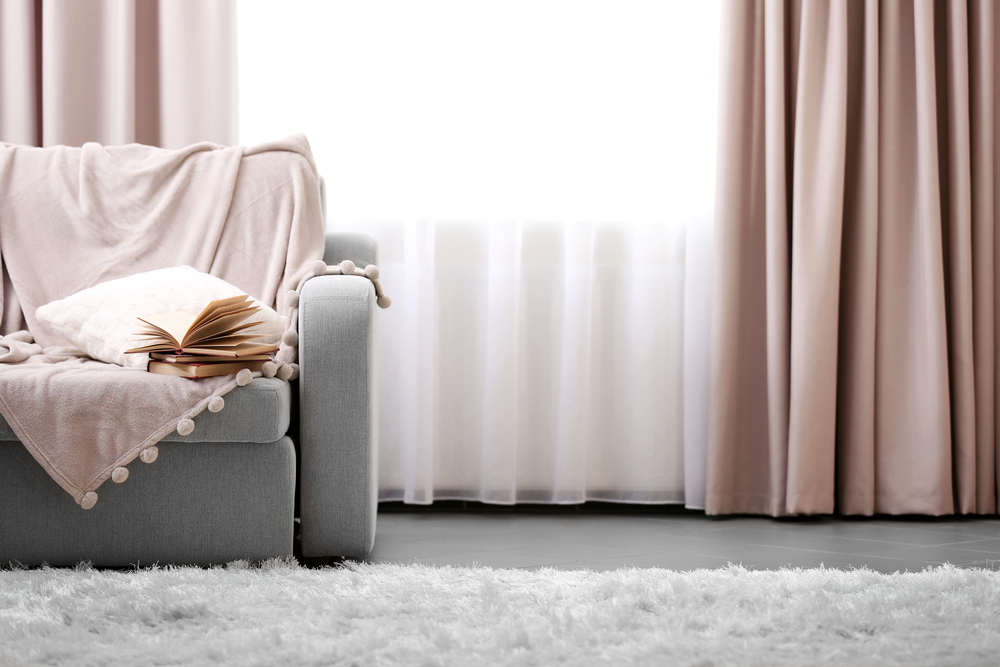
#2. Consider the Colour
Colour, of course, is one of the most important considerations when you’re doing up your interior! Always pick colours that go with the overall palette that you have in mind for the room.
Do you want the curtains to blend in and harmonise with the rest of the room? Choose shades that are close together on the spectrum, like blues and greens. However, if you dare to be different and want your curtains to offer contrast, then pick hues that are on opposite ends of the spectrum—blue curtains with a predominantly orange colour palette would be an example.
Here, the neutral palette of grey and white is reflected in the drapes as well and makes for an elegant, luxe aesthetic.
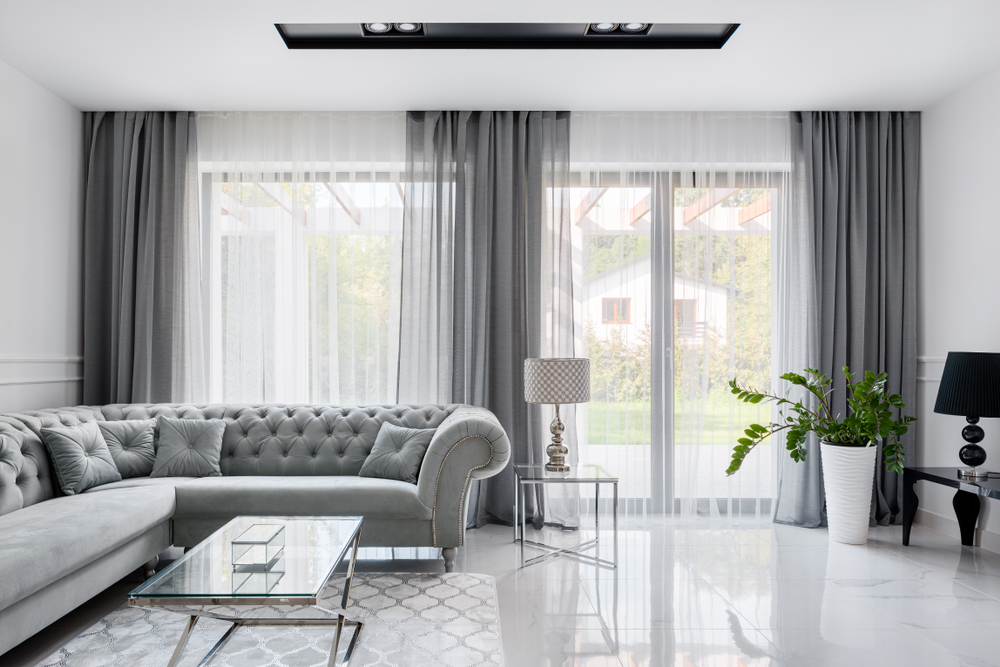
#3. Solid Hues or Patterns?
Plain, solid colours tend to blend in and be unobtrusive, especially if they are in a light or neutral hue. However, if you’re opting for printed curtains, they can become the standout feature of the room and add vibrancy and pattern to your décor.
If your living room already has a lot of patterns in the upholstery, rugs, wallpaper and artwork, then you should, ideally, opt for plain curtains to balance the look. The opposite also applies; if the rest of the furnishings in your room are plain, then printed curtains will add focus and visual interest.
Choose patterns and prints that go with your décor theme. For instance, delicate paisley prints will go well with a traditional or classical décor theme, while bold stripes or zigzag prints will look good in a modern living room.
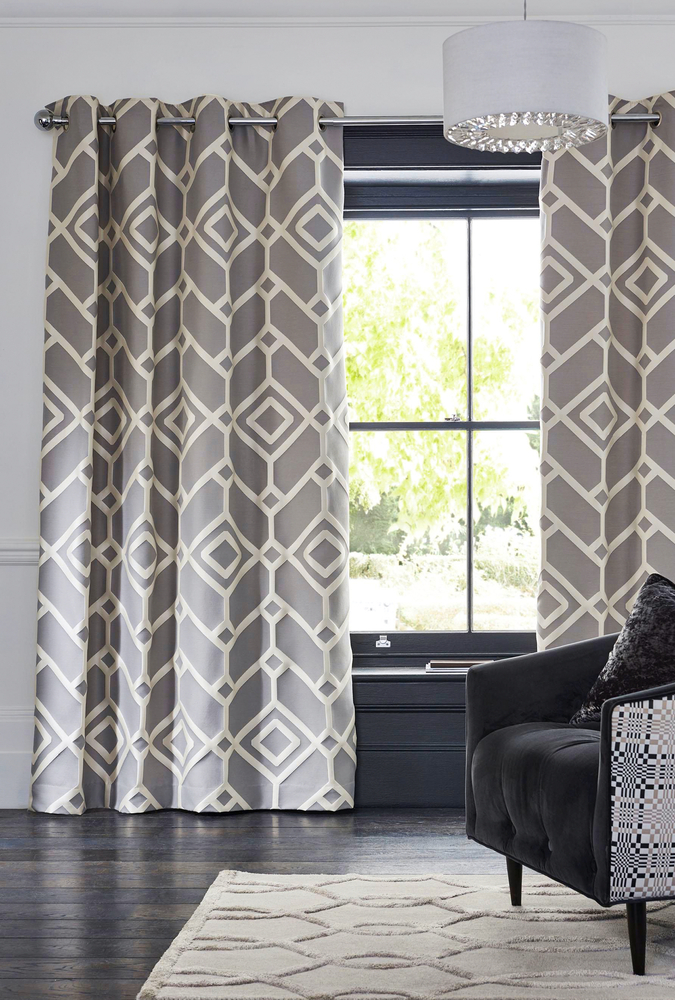
#4. Consider the Style
When choosing the fabric, the décor theme and style of curtains also play a key role.
If your living room is classically styled, you can opt for traditional pleated curtains that are tied back on either side and are hung from floor-to-ceiling. You can add scalloped valances, or have the top of the curtains disappear behind the false ceiling, as in this living room below.
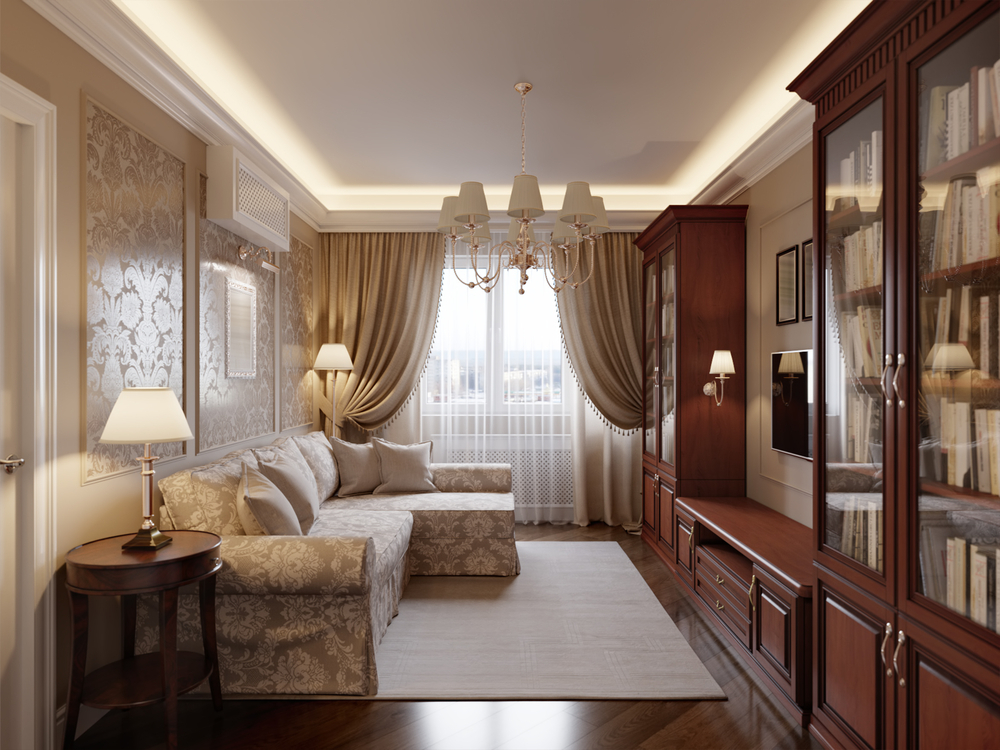
Eyelet curtains are another popular option, and lend a very contemporary look to your home. The fabric is tailored with eyelet holes that pass through a curtain rod. These curtains fall evenly with soft folds, giving a wave-like effect, and look good with plain or printed material.
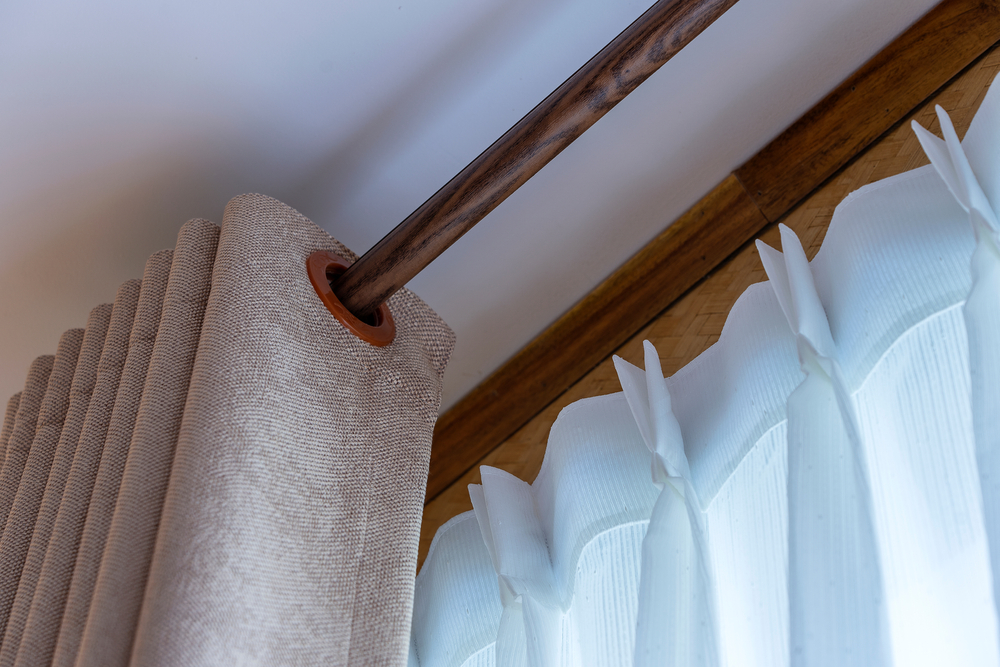
Roman blinds that are custom-tailored to suit the dimensions of your window are a very versatile alternative to traditional curtains. They can suit transitional and modern décor themes, and are very easy to operate and maintain. Roman blinds can be a cost-effective option, too, as they require lesser lengths of fabric than pleated or eyelet curtains.
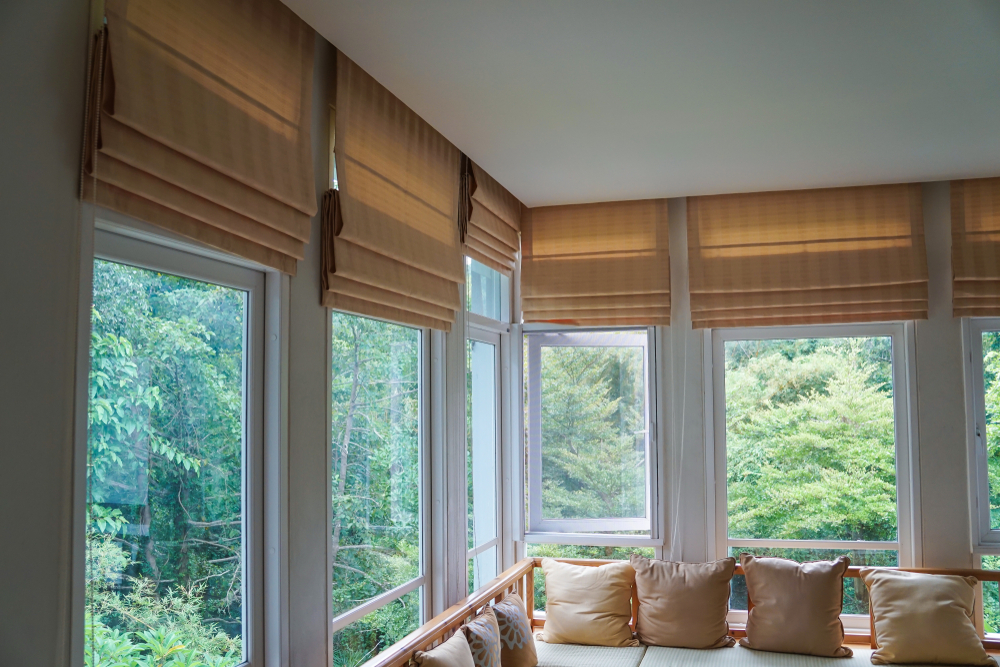
#5. Consider the Length
How long should your curtains be?
Traditional styles look good from floor to ceiling, or hung from about 8 inches above the top of the window frame till just above the floor level.

Roman blinds are tailored to exactly fit in your window, if inset, or hang just a few centimetres outside the frame.
Important Points to Keep in Mind!
- For very sunny rooms, pick fabrics that will not fade. You can extend the life of curtains by adding a lining, if they are likely to be exposed to a lot of sunlight.
- Silk curtains must always be lined, so that they fall correctly and the fabric lasts longer.
- To maximise the amount of sunlight in your living room, use sheer curtains or horizontal blinds.
- Graphic patterned fabrics, like chevron stripes, add energy and a sense of movement to your room.
- Floor-to-ceiling curtains in a sheer material make a room appear taller than it is.
- Long curtains that puddle on the floor look elegant, adding a charming and whimsical touch.
- Avoid heavy, thick curtain material in a small room as it will feel claustrophobic. Instead, opt for lightweight sheers that let in the sunlight.
- If your room is dusty, opt to have the curtains end an inch above the floor level, so that they don’t get dirty when sweeping or mopping the floor.
Choosing the right curtains could be an overwhelming, time-consuming task, and you may not even be sure you’ve made the right decision in the end. Or, you can take the easy way out and leave all the choices to your expert HomeLane designer! Do get in touch, we’re always happy to help.




